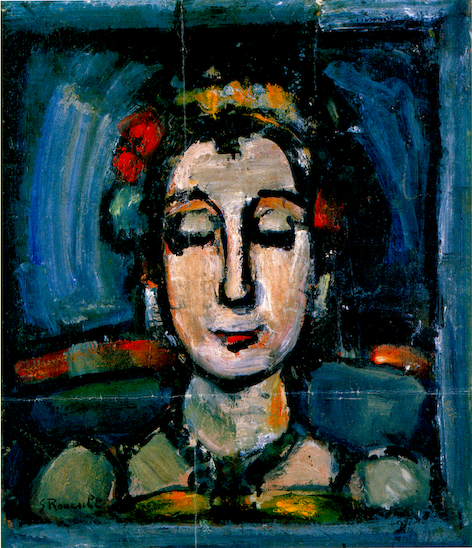On Knowledge in Quine's "Quiddities"
How

On Knowledge in Quine's "Quiddities"
How

"Knowledge What counts as knowing something? First, one must believe it. Second, it must be true. Knowledge is true belief. However, as is often pointed out, not all true belief is knowledge. If something is believed for the wrong reason but just happens to be true, it does not qualify as knowledge. Knowledge has accordingly been described more specifically as justified true belief. But this definition is still not narrow enough, as Edmund Gettier pointed out. The justification underlying a belief can be as reasonable and conclusive as you please and yet be contravened by some circumstance that nobody could reasonably have suspected. If this happens, and if by coincidence the belief is nevertheless true for other and independent reasons, then it is a justified true belief but still is undeserving of the name of knowledge. It is believed for the wrong reason. An example is afforded by tabloids that appeared in the streets on November 7, 1918, mistakenly announcing an armistice. Two sportsmen set sail from Boston in their little sloop that day, with the newspaper on board and certainly no radio. They landed in Bermuda four days later in the well-founded belief that the war was over. They were right, too; it had just ended. But their belief was not knowledge, for its grounds, though reasonable, were wrong. The notion of knowledge is beset also by a less subtle difficulty: a vagueness of boundary. Knowledge connotes certainty; what shall we count as certain? Even if one holds that some things are absolutely certain, and is prepared to specify a boundary between absolute certainty and the next best thing, still one would hesitate to limit knowledge to the absolutely certain. That would do violence to both the usage and the utility of the word. We do better to accept the word 'know' on a par with 'big', as a matter of degree. It applies only to true beliefs, and only to pretty firm ones, but just how firm or certain they have to be is a question, like how big something has to be to qualify as big. There is no place in science for bigness, because of this lack of boundary; but there is a place for the relation of biggerness. Here we see the familiar and widely applicable rectification of vagueness: disclaim the vague positive and cleave to the precise comparative. But it is inapplicable to the verb 'know', even grammatically. Verbs have no comparative and superlative inflections, sequitissimur to the contrary notwithstanding (see PREDICATE LOGIC). I think that for scientific or philosophical purposes the best we can do is give up the notion of knowledge as a bad job and make do rather with its separate ingredients. We can still speak of a belief as true, and of one belief as firmer or more certain, to the believer's mind, than another. There is also the element ofjustification, but we saw its limitations. These reflections perhaps belong in their rudimentary way to the branch of philosophy known as epistemology, or the theory of knowledge. Rejection of the very concept of knowledge is thus oddly ironical. It is not skepticism. Skeptics accept the concept of knowledge and deny its applications. What we are concluding rather is that the term does not meet scientific and philosophical standards of coherence and precision. The term retains its rough utility in the vernacular, like 'big', and, contrary to what the skeptic claims, there is plenty to which it then most emphatically applies. The limitations of the concept have had insidious effects, however, even apart from philosophical contexts. Creationists challenge the evolutionists, who, being scientists, scruple to claim absolute certainty. The creationists then respond that the theory of evolution is therefore not known to be true, and hence that creationism should get equal time. Religious apologists and occultists on other fronts take heart in similar fashion. Sometimes also an unscrupulous criminal lawyer sees his way to exploiting the scientist's honest avowal of fallibility: it is not utterly and unequivocally known that the accused was in full possession of his faculties at the time of the atrocity. Beyond a reasonable doubt, perhaps? That, ifjustice is to prevail, is where the contest is resumed. In closing I should acknowledge that there are two kinds of knowing: knowing how, as in swimming and bicycling, and knowing that. It is only the latter that has been exercising us here. Knowing how is a matter rather of what, thanks to one's training or insight, one can do. So in French; on peut faire is interchangeable, half the time, with on sait faire. Indeed our own know and can are ultimately the same word; compare the kn of know and the cn of can. In German, more obviously, we have kennen and konnen. The Greek and Latin gno- of gnostic and ignorant is the same thing again. This last recalls a witty coinage by the biochemist Albert Szent-Gyorgyi, told to me by the biochemist John Edsall. The substance concerned was not yet wholly identified, but had to be in the sugar family along with sucrose, glucose, dextrose, levulose. He called it ignose, after considering and rejecting godnose. Our admiring chuckle is followed by wonder at the triple play: ignorant, knows, and the sugary -osee But the first pair, we now see, is no accident." - Knowledge.
本文……
リンク
文献
その他の情報


